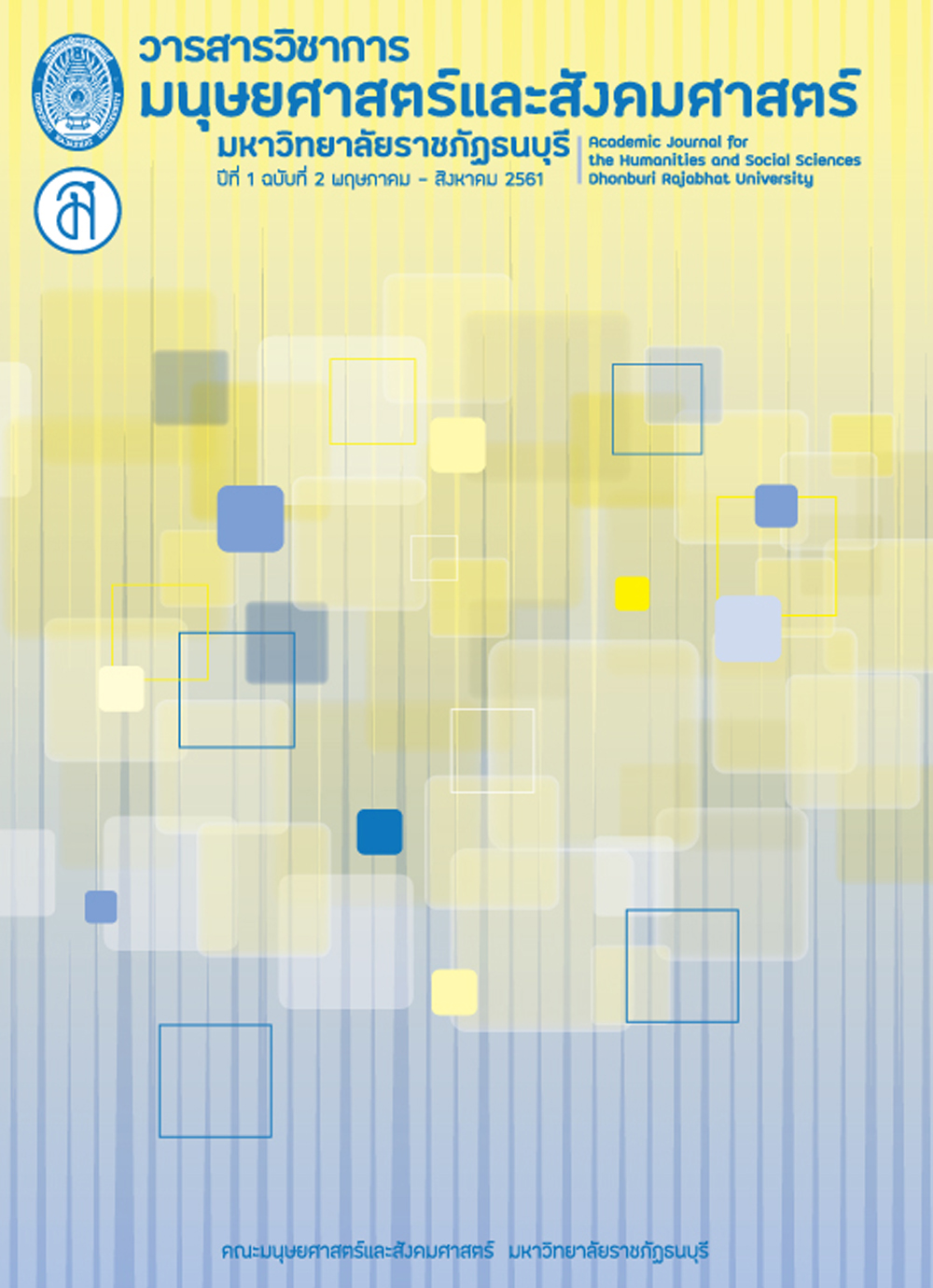Euphemisms in English Language
Abstract
It is known that Thai students study English since they were at least three years old. It takes about fifteen years studying English before graduating from universities. Unfortunately, their English proficiency is still limited. As a teacher of English for several years, the author has found that one of the factors affecting students’ proficiency in English is the lack of English vocabulary. This factor leads to difficulties when reading English printed materials. The words used in English reading materials sometimes do not represent direct meanings because the writer or the speaker wants to avoid others’ embarrassment. These types of words are called euphemisms. Euphemisms are used to replace the words which are impolite. They are considered as the idiomatic expressions that lose their literal meaning and they are used in the sentences to hide the unpleasantness. As a result, Thai students, who are non-native English speakers, sometimes cannot interpret what they have read or even listened. The author, therefore, presents the article on “Euphemisms in English Language” in order to provide the importance of euphemisms in English language and why we, as teachers of English and English learners, have to study them seriously.
References
Alkire, S. ( 2002). Introducing Euphemisms to Language Learners. The Internet TESL Journal, Retrieved August 1, 2018, from http://iteslj.org/Lessons/Alkire-Euphemisms.htm
Amory, M. (2016). Euphemisms in Advertisements. Retrieved July 31, 2018, from https://prezi.com/te0ierfiom8p/euphemisms-in-advertisements/77
Bodnar, K. (2016). Sell Online Marketing to Your Boss: 7 Euphemisms Everyone Needs. Retrieved August 10, 2018, from https://blog.hubspot.com/blog/tabid/6307/bid/6734/Sell-Online-Marketing-to-Your-Boss-7-Euphemisms-Everyone-Needs.aspx
Doublespeak, (2018). Euphemisms in Advertising. Retrieved August 6, 2018, from https://www.google.co.th/search?hl=enTH&rlz=1C1GCEA_enTH758TH758&tbm=isch&q=euphemism+in+advertising+examples
Hojati, A. (2012). A Study of Euphemisms in the Context of English-speaking Media. International Journal of Linguistics, 2012 (4) Retrieved August 6, 2018, from www.macrothink.org › Home › Vol 4, No 4 (2012).
King, S. (2015). Euphemisms in Language. Retrieved June 20, 2018, from https://unravellingmag.com/articles/euphemisms/
Merino, E. (2018). Effective Ways to Work with Euphemisms in the Classroom. Retrieved August 3, 2018, from http://eltlearningjourneys.com/2018/03/14/effective-ways-work-Euphemism
Nordquist, R. (2018). Why Do We Use Euphemisms? Retrieved August 4, 2018, from https://www.thoughtco.com/why-do-we-use-euphemisms-1692701
Noronha, A. (2018). The Power of Communication: A Reflection on Euphemism. Retrieved July 6, 2018, from http://truthandcharityforum.org/deadly-and-deceptive-euphemism/
Romansky, J. (2015). Advertising Euphemisms Don’t Stop at ‘Pre-Owned’. Retrieved July 31, 2018, from http://www.fosters.com/article/20150517/entertainmentlife/150519641
VOA Learning English (2017). Why Americans Use Euphemisms. Retrieved August 2, 2018, from https://learningenglish.voanews.com/a/euphemisms/3950918.html
Schneider, L. (2011). 20 Examples of Great Euphemisms. Retrieved July 30, 2018, from https://lynnschneiderbooks.com/2011/12/23/20-examples-of-great-euphemisms/
Downloads
Published
How to Cite
Issue
Section
License

This work is licensed under a Creative Commons Attribution-NonCommercial-NoDerivatives 4.0 International License.
บทความที่ได้รับการตีพิมพ์เป็นลิขสิทธิ์ของ คณะมนุษยศาสตร์และสังคมศาสตร์ มหาวิทยาลัยราชภัฏธนบุรี
- บทความในวารสารวิชาการมนุษย์และสังคมศาสตร์ มหาวิทยาลัยราชภัฏธนบุรี เป็นความคิดเห็นของผู้นิพนธ์ ไม่ใช่ความคิดเห็นของกองบรรณาธิการ และไม่ใช่ความรับผิดชอบของกองบรรณาธิการและ/หรือของคณะมนุษยศาสตร์และสังคมศาสตร์ มหาวิทยาลัยราชภัฏธนบุรี
- กองบรรณาธิการไม่สงวนสิทธิ์ในการคัดลอก แต่ให้อ้างอิงแสดงที่มา
- บทความที่ได้รับตีพิมพ์จะมีการตรวจความถูกต้องเหมาะสมจากกองบรรณาธิการและผู้ทรงคุณวุฒิในสาขาที่เกี่ยวข้อง (peer review) จำนวน 3 คน โดยผู้ทรงคุณวุฒิจะไม่ทราบผู้นิพนธ์ และผู้นิพนธ์ไม่ทราบชื่อผู้ทรงคุณวุฒิ (double-blind peer review)




